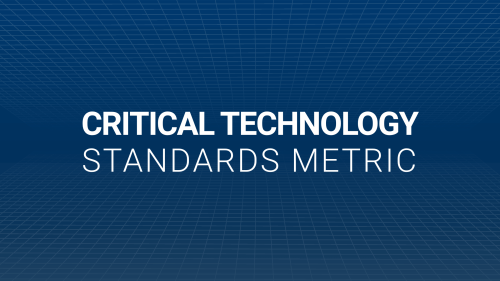Editor’s note: On November 16, the Center for Technology Innovation at Brookings will host the European Commissioner for Justice, Consumers and Gender Equality, Věra Jourová. Commissioner Jourová will discuss the negotiation for a new framework for transatlantic data, which she leads on the European side.
The week of November 2 marked a milestone in Washington’s attention to the global digital economy. Two different House committees held hearings on the flow of information across borders. The text of the Trans-Pacific Partnership (TPP) agreement was released, including an e-commerce chapter that goes much deeper than chapters in previous agreements. And Vice-President Biden used a call to European Union President Jean-Claude Juncker to take up the issue of a new agreement enabling transatlantic data flows to replace the one invalidated by the EU’s Court of Justice.
This trifecta reflects increasing recognition of digital information flows as an essential part of the global economic infrastructure, and the urgency of U.S. engagement in sustaining these information flows and the global networks that enable them. That integrity of these networks is being challenged on many fronts as governments around the world assert controls on data that flows in and out of their borders.
It was 20 years ago that writer and Grateful Dead lyricist John Perry Barlow famously wrote a Declaration of Independence of Cyberspace, in which he announced “Governments of the Industrial World, I come from Cyberspace, the new home of the Mind. On behalf of the future, I ask you of the past to leave us alone. You are not welcome among us. You have no sovereignty where we gather.” Barlow was reacting to passage of the Communications Decency Act (CDA). Today, sovereignty is pushing back with measures that make the CDA look pale.
Last week shined a light on these threats and marked a new step forward in developing a coherent U.S. policy to promote open and interoperable digital networks throughout the globe.
House hearings look at the challenges
Both the House Energy and Commerce Committee and the House Judiciary Committee conducted hearings on Tuesday, November 3. The Judiciary hearing was focused on digital trade and the significance of data flows. The Energy and Commerce hearing was focused on the EU’s decision to strike down the Safe Harbor Framework that has enabled transatlantic data flows despite differences in the U.S. and EU legal regimes protecting privacy.
The hearings were a mostly harmonious chorus in celebration of the contribution of data flows to global commerce and economic growth. One of the witnesses was my Brookings colleague Josh Meltzer, whose seminal contribution to understanding the economic importance of transatlantic data flows was cited by other witnesses. Among an array of industry associations, the U.S. Chamber of Commerce cited digital trade as contributing $8 trillion to the global economy. Rob Atkinson of the Information Technology and Innovation Foundation presented a detailed economic case for the benefits of digital information flows across a range of sectors. Even Marc Rotenberg of the Electronic Privacy Information Center, the lone consumer representative who called for stronger privacy protections in the United States, said that “neither consumers nor businesses want to see the disruption of trans-border data flows.”
The Judiciary Committee hearing was especially helpful in shining a spotlight on countries that have adopted or are considering data localization laws that require certain data from their countries be kept on servers in that country. These include Australia, China, Greece, India, Indonesia, Malaysia, Nigeria, Russia, South Korea, Switzerland, Turkey, Venezuela, and Vietnam, a growing list.
Responding to Safe Harbor
While the House Judiciary hearing was not focused specifically on Safe Harbor, the EU Court of Justice decision nevertheless was a prime topic of the broader hearing on data flows. Although the Court of Justice did not act for protectionist reasons, the uncertainty and dislocation left by its decision are great enough that companies relying on transatlantic data flows might as well be paying tariffs on the transfers.
The Commerce Department has been negotiating with the European Commission for two years for a new framework for data transfers. With the invalidation of the existing framework, these negotiations have taken on new intensity and have been the subject of numerous high-level interagency meetings on the U.S. side. That sense of urgency was reflected in a call between Vice-President Biden and EU President Jean-Claude Juncker in which both affirmed the need to conclude an agreement rapidly.
The EU’s lead negotiator, Commissioner for Justice, Consumers, and Gender Equality Vĕra Jourová, is scheduled to be in Washington; perhaps her visit will feature concrete results on an agreement.
TPP takes on data localization
When the government of New Zealand posted the text of the Trans-Pacific Partnership on its website, it shed light on a number of provisions for digital trade. These include a requirement that parties adopt consumer protection laws, some form of privacy laws, and anti-spam provisions. It also calls for cooperation on cybersecurity, protection of trade secrets, and a prohibition on required access to source code.
Notably, the e-commerce chapter allows regulation of data transfers, but provides that parties “shall allow cross-border transfers of information by electronic means, including personal information, when this activity is for the conduct of the business of a covered person,” and includes a provision against requiring that data or facilities be located in the territory of a signatory country.
As an indication that this provision would be effective against some of the provision raised in congressional hearings, the text allows short-term exceptions for Vietnam and Malaysia. Evidently these countries recognized that TPP would require a change in their laws and negotiated for time to respond. That’s one marker of success in the agreement.
A heightened focus on global data
We still have a ways to go to incorporate digital issues into mainstream U.S. economic and security policy. But for those who have fought to build understanding of the broad impact of these issues, last week’s concerted focus on these issues was heartening.



Commentary
Standing up for the global flow of information
November 11, 2015